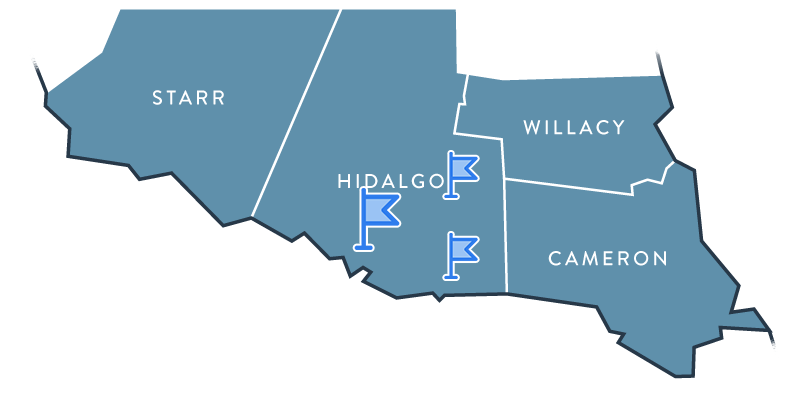Welcome to Valley Land Title Co.
Your closing partner every step of the way.
Frequently Asked Questions (FAQS)
Please note that the information contained herein is for informational purposes only. Feel free to contact us if you have a more specific question that is not covered here. Your question will be directed to a professional in the relevant field and answered as soon as possible. If you are currently involved in a real estate transaction, please direct your questions to your real estate professional or escrow officer.
What does a title insurance company do?
What is Closing?
What types of policies are there?
What is Escrow?
What are common claims, or risk, covered by title insurance?
How long is the coverage under the Owner’s Policy?
Do I need to renew the Owner’s Policy of Title Insurance?
What happens if I do not get an Owner’s Policy?
Q: WHAT DOES A TITLE INSURANCE COMPANY DO?
A title insurance company can “close” the transaction whether it is a sale involving Sellers, Buyers, Realtors and Lenders or a loan in which there is a Borrower and Lender and issue the Owner’s and Loan Policies. The title insurance company may only be requested to issue the Policies when Closing occurs elsewhere. The Company may also provide various types of property reports when no policies are to be issued and no Closing is to occur.
Q: WHAT IS CLOSING?
When the title insurance company is requested to handle the Closing, the file is assigned to an Escrow Officer (a/k/a Closer) and the Officer coordinates with the Sellers, Buyers, Realtors and Lenders to obtain all information necessary in order to prepare documents; address any issues prior to Closing; schedules a date to meet with the parties to sign and notarize all necessary paperwork sent by the Lender; receives monies from Lender and Buyer/Borrower; disburses all funds; records documents; and sends file to the Policy Department for issuance of Policies.
Q: WHAT TYPES OF POLICIES ARE THERE?
There are two types of policies, Owner’s Policies and Loan Policies.
Owner’s Policy
The Owner’s Policy protects you against losses from ownership problems that arose before you bought the property, but that were not known at the time you bought the property. The Owner’s Policy protects the Buyer from the covered risks listed in the policy.
Loan Policy
The Loan Policy is issued to the Mortgage Lender. It protects the Lender’s interest in the property until the Borrower pays off the mortgage.
Q: WHAT IS ESCROW?
Once your offer on a home or other real estate property has been accepted by the seller, your transaction is placed into escrow. An escrow is an arrangement in which a neutral third-party, called an Escrow Holder, holds legal documents and funds on behalf of a buyer and seller and facilitates the transaction by managing the disbursement of these legal documents and disbursement of funds according to the Buyer’s, Seller’s, and Lender’s instructions.
People buying and selling real estate often open an escrow for their protection and convenience. The Buyer can instruct the Escrow Officer to disburse the purchase price only upon the satisfaction of certain prerequisites and conditions. The Seller can request to retain possession of the deed to the buyer until the seller’s requirements, including receipt of the purchase price, are met. Both rely on the Escrow Officer to carry out faithfully their mutually consistent instructions relating to the transaction and to advise them if any of their instructions are not mutually consistent or cannot be carried out.
Q: WHAT ARE COMMON CLAIMS, OR RISK, COVERED BY TITLE INSURANCE?
There are different levels of coverage. When in doubt, ask your title insurance agent. Standard coverage includes:
Forgery and fraud
Lack of competency or legal authority of party
Deed not joined in by necessary party
Undisclosed (but recorded) prior mortgage or lien
Undisclosed (but recorded) easement or use restriction
Legal description error
Lack of right of access
Deed not properly recorded
Q: HOW LONG IS THE COVERAGE UNDER THE OWNER’S POLICY?
A Loan Policy lasts until the loan is paid off. An Owner’s Policy of Title Insurance lasts as long as you or your heirs own the land. It may also provide warrantor’s coverage after you no longer own the property, depending on your policy provisions.
Q: DO I NEED TO RENEW THE OWNER’S POLICY OF TITLE INSURANCE EVERY YEAR?
You pay for title insurance only once—when you purchase the Owner’s Policy—unless you decide at a later date to add more coverage. Coverage lasts as long as you or your heirs own the land and may last forever for any title warranties made when you sell the property.
Q: WHAT HAPPENS IF I DO NOT GET AN OWNER’S POLICY?
If an issue arises after the date you purchase the property, without an Owner’s Policy of Title Insurance, you would not have a policy under which to make a claim. You would bear the cost of any loss directly.
Ready to get started?

